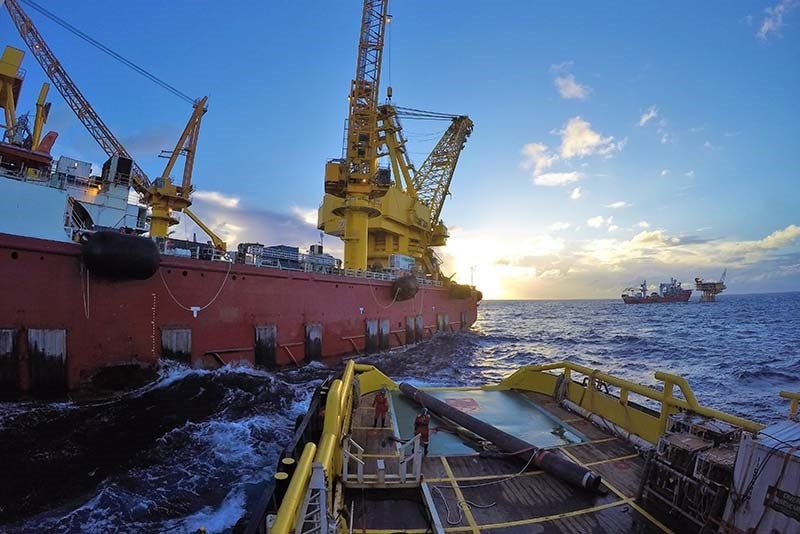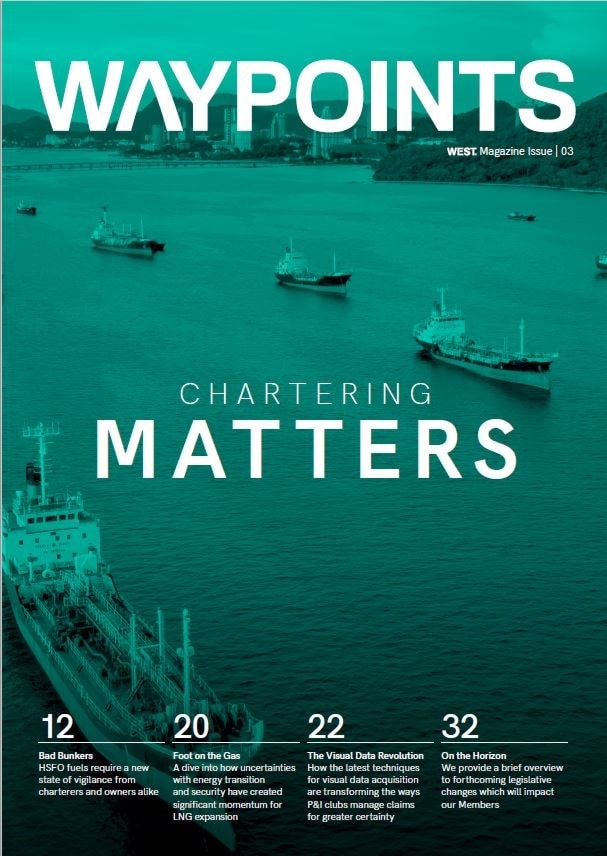Salvage & GA - Waypoints 03
Salvage and general average are not matters that charterers usually think about when considering their financial exposure under a charterparty, but such events can have a significant financial impact on a charterer if satisfactory insurance cover is not in place.
Salvage occurs when a salvor engages in a ship casualty to save the vessel, the cargo (if laden), bunkers and life. Salvors are often also engaged in anti-pollution activities.
General average (which can also include salvage) occurs when an extraordinary sacrifice or expenditure is intentionally or voluntarily incurred in circumstances of a real danger for the common safety of the property involved in the maritime adventure.
Where the charterer is the owner of the bunkers on the vessel – for example under a time charterparty - the liability of the charterer would be in relation to the value of bunkers salved or saved. Charterers should check the terms of their charterparty to ascertain whether they are the owners of the bunkers (i.e. dependent on the charterparty terms, as distinct from when payment is made).
The contribution of the bunkers would then be pro-rated to the value of the salved vessel and cargo. Unless the bunkers on board are considerable, or the value of the vessel low, the percentage contribution of bunkers to any award or adjustment is not likely to be significant in the context of the whole cost of the salvage or general average expenditure but is nevertheless a cost which will come directly off the charterer’s bottom line for the voyage concerned.
Charterers may also face a similar liability if, under a voyage charter, the freight they are due has not been paid at the time of the incident. In such circumstances the freight “at risk” will have been “saved” by the salvage or by the general average event. The issues around whether the freight is or was “at risk” at the time of the incident and whether freight or hire is excluded from contributing are not always straight forward and dependent on the charterparty and bill of lading terms.

Charterers should therefore protect themselves from such unwelcome potential financial obligations by purchasing a suitable charterers liability policy covering these risks.
WEST are able to offer such policies for charterers and which can also be tailor made to meet a charterer’s specific needs and requirements. It protects the charterer against the risk of having to contribute to general average, salvage and special charges in respect of the charterer’s own property at risk in the maritime venture.
For more information, please click here.

Tim Davies
Senior Claims Manager, West P&I
Tim Davies spent six years at sea as a deck officer serving on general cargo, container, tanker, bulk
carrier and refrigerated vessels. He then studied law and economics at the University of Wales. After
graduating Tim worked for over 20 years in private practice handling charterparty, MoA and contractual
disputes, and arbitration cases from initial advices through to oral hearings. Tim also dealt with
admiralty matters worldwide including groundings, fire, collision, salvage and total loss cases. He joined
the Greek Office of West of England in 2008 and transferred to London in 2018 where he handles both
FDD and P&I claims.

